Postcard from Indonesia: The world's “Biggest Invisible Country” — but for how long?
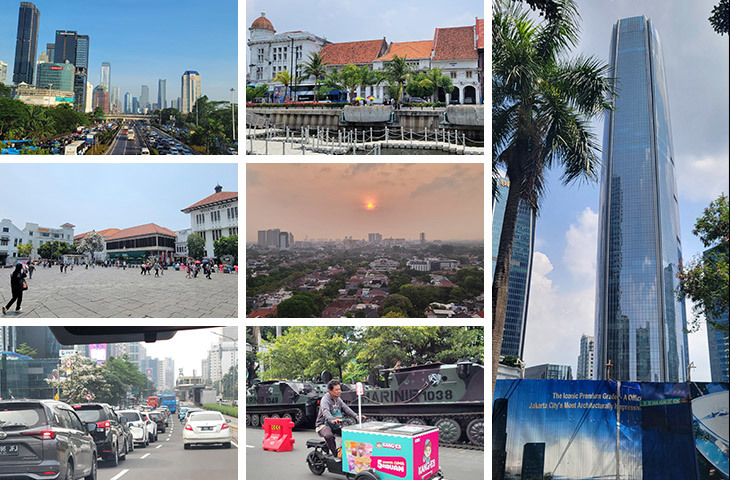
I’ve just returned from a whirlwind trip to Jakarta, and wow, Indonesia truly surprised me. This country, often flying under the radar, is the fourth most populous nation on Earth and the largest economy in Southeast Asia. Yet, it rarely makes global headlines and has been called “the world’s biggest invisible country”. With a GDP of USD 1.4 trillion, annual growth of 5%, essential resources like nickel and cobalt and a new President, I’m left wondering whether this is about to change.
Unity in Diversity — and traffic chaos
One of the first things that struck me in Jakarta was the rich diversity. The country’s motto, "Bhinneka Tunggal Ika" (Unity in Diversity), is embodied everywhere. The city is a bustling mix of people and cultures, making it vibrant and colorful, the kind of places I love.
But then there’s the traffic. Jakarta is infamous for its congestion. I’ve been in some crowded cities, but this was something else. I saw quite a few electric cars, mostly Chinese and Korean brands, taking advantage of exemptions from traffic restrictions in central Jakarta. Yet, for the most part, vehicles run on subsidized petrol, and the pollution levels reminded me of my years living in Shanghai. Motorcycles are everywhere, weaving through cars, carrying passengers on Gojek or Grab, Indonesia’s answer to Uber.
With the temperature hovering around 34°C (93°F), I stuck to cars, avoiding the dust and fumes, but it wasn’t a smooth ride. VIP convoys with flashing lights made the traffic even worse. And forget about walking — the city is notorious for being unwalkable, so I couldn’t go for my usual morning runs.
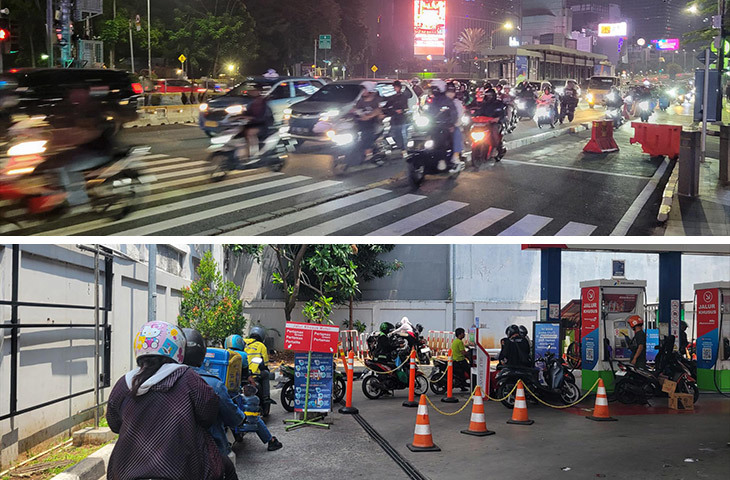
A city that's sinking — and a new one rising
Jakarta is huge, the second largest urban agglomeration in the world, and it’s sinking. Literally. Excessive groundwater extraction has made it the world’s fastest-sinking capital, with some areas already 40% below sea level. During my visit, that fact was visible to the naked eye, from the streets in northern Jakarta where flooding is a regular threat.
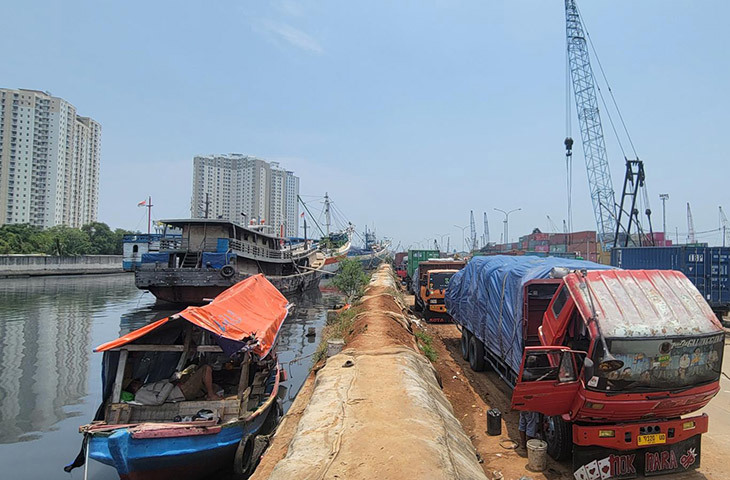
I asked around about the ambitious Giant Sea Wall project, meant to protect the city from future submersion, but no one seemed to know much. It felt like a forgotten plan.
What people were talking a lot about, however, was the new capital, Nusantara, being built in Kalimantan, on Borneo, 1,200 kilometers away. The grandest project of outgoing President Jokowi is already seriously delayed. The government expects it to cost upwards of USD 35 billion over the next three decades, and plans to fund this megaproject through public-private partnerships but private investors have so far lacked enthusiasm.
Politics and power moves
Politics was the main topic in every conversation I had. Indonesia is on the verge of a leadership change. Prabowo Subianto, the incoming president, is set to be inaugurated on October 20, and his choice for vice president has raised eyebrows — a 36-year-old, talented but inexperienced, who happens to be the outgoing president's son.
Prabowo himself is a former general with a controversial past. His ties to the Suharto era (he married Suharto’s daughter), combined with allegations of human rights abuses, make some uneasy. On the other hand, he’s known as a cosmopolitan, fluent in English and French. Locals are speculating on what kind of leader he’ll be. Will he continue Jokowi’s infrastructure push, or will he shift the focus to social programs like free school lunches, which he’s promised? A commendable program for public health and poverty reduction, but where will the USD 25 billion needed to fund this program come from?
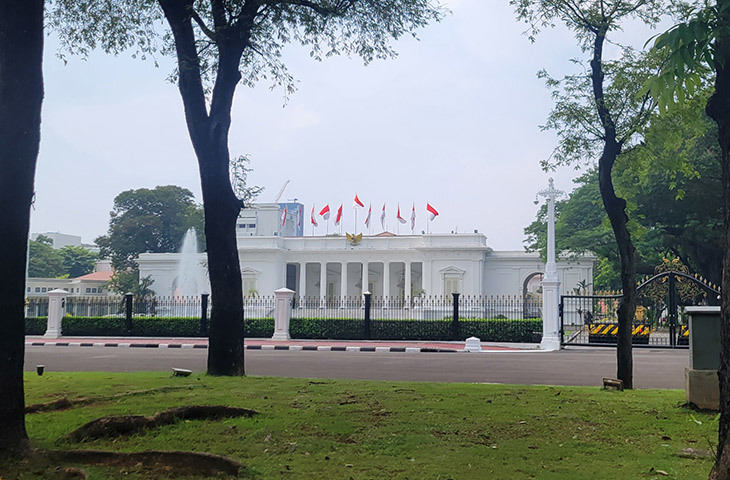
The growing influence of China
If there's one thing clear about Indonesia's future, it’s the growing role China is playing. The Chinese embassy may be modest in size, but China’s economic footprint is anything but. Indonesia is deeply intertwined with China, its biggest trading partner and largest source of foreign direct investment. One thing that kept coming up was how quickly Chinese companies operate — three years to complete investments while Western companies take the same amount of time .... just to make the decision.
One standout example is the “Whoosh,” Indonesia’s first high-speed rail built with Chinese support and expertise, which will connect the whole of Java. The first portion opened last October, linking Jakarta to Bandung. I spoke to a local who was excited about visiting family in a fraction of the time it used to take, but many questioned whether the USD 7 billion price tag was really worth it. Infrastructure here doesn’t have the same multiplier effect it has in countries like China, where everything is connected by land. Indonesia’s 17,000 islands make that tricky.
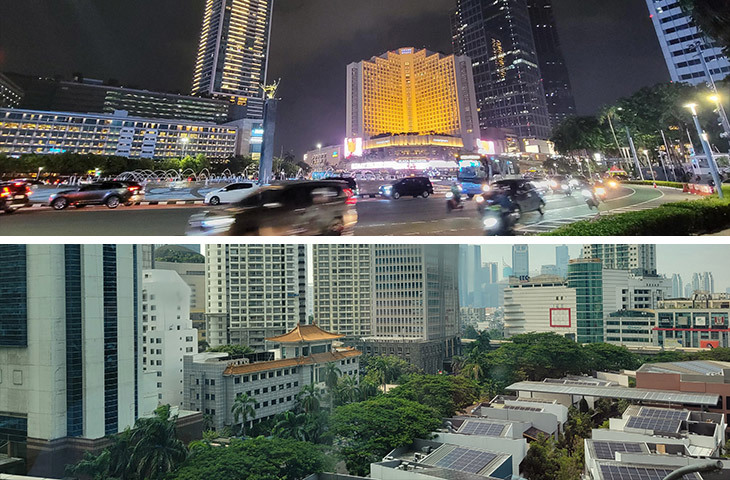
Economic ambitions and realities
Indonesia’s economy is growing at around 5% a year, driven by household consumption, which makes up more than half of GDP. For now, this is a sweet spot, with the country’s young population and rising middle class. But when Prabowo talks about pushing for 8% growth, many I spoke with were skeptical. It hasn’t happened before, and it seems unlikely now.
Natural resources are still king here. Indonesia is rich in commodities, especially those critical to the electric vehicle (EV) supply chain. It has the world’s largest nickel reserves and is the second-largest producer of cobalt. The government has banned nickel ore exports to encourage domestic processing. But this sector hasn’t created the jobs the country needs, and the low levels of education and high logistics costs are holding manufacturing back.
Listed equities – an untapped potential?
The Jakarta Stock Exchange building in the SCBD Sudirman area of South Jakarta is very impressive, but the stock market itself is underdeveloped with a market cap of USD 881 billion and only 1.6% weight in the MSCI Emerging Markets Index. Financials dominate the indices, followed by coal and mining stocks. In March 2023, the JCI welcomed its first tech company, Goto (a merger of Gojek and e-commerce Tokopedia), at the time Asia’s third largest Internet company, but the stock has plummeted by 84%. After a record IPO year in 2023, the pipeline of new offerings has dried up, awaiting renewed investment interest once the new government is in place. The key question for the stock market is whether the new government will reform the public pension funds, which currently allocate only 5% of their portfolios to equities.
I met with one of our long-term holdings, a leading lifestyle retailer in Indonesia with franchises for 150 brands in sports, fashion, children’s products, food and beverage, and lifestyle items across 3,200 retail stores. I visited some of their stores in Grand Indonesia, the largest mall in Jakarta (which has 170 malls!).

Looking ahead
Indonesia is at a crossroads. The next five to ten years will be crucial as it navigates the middle-income trap, builds a sustainable job market, and balances its dependence on natural resources with the demands of a changing global economy.
What struck me the most was the optimism. Indonesians are deeply proud of their country. Most Indonesians who study overseas choose to return home, which you don’t see in many other emerging markets. As one local put it, “Indonesians are happy to be home.”
For a country often referred to as “the biggest invisible country,” I suspect, with the upcoming presidential inauguration later this week, that Indonesia will gain some face time in the global spotlight. As for me, I have already booked another trip, this time to Medan, in North Sumatra.
Key takeaways:
- Underdeveloped stock market: Despite being the world’s fourth most populous country with abundant resources, Indonesia's stock market remains small and underdeveloped compared to its economic size and importance.
- Critical resources for energy transition: Indonesia holds vast reserves of key materials like nickel and cobalt, essential for the global energy transition, positioning it as a crucial player in the supply chain.
- Future capital and China's influence: Key discussions centered around the new capital city project, Nusantara, as well as Indonesia’s deepening relationship with China, particularly in infrastructure and investment.
- Shift in political focus: The new president will likely pivot towards demand-side policies, aiming to boost consumption—a key growth driver fueled by strong demographics—while scaling back on large-scale infrastructure projects.
- Rising global presence: Indonesia is poised to take a more prominent role on the global stage in the coming years, with growing influence in geopolitics and the global economy.











